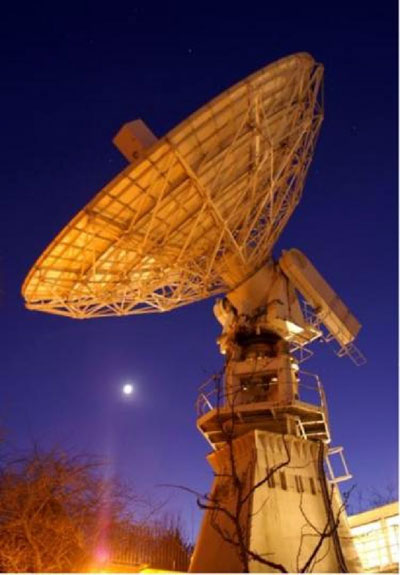Understand the implications with the Cold War telescope
The prospect of the Cold War glass in England was originally aimed at tracking ballistic missiles. Now it also adds to the discovery of 'young' pulsars, which determine their development.
>>>Planck Space Telescope "retired"

This radio telescope called Jodrell Bank , 13 meters in diameter, has been observed to be a neutron star named Crab, formed from a massive cosmic explosion that occurred in 1054.
Thanks to Jodrell Bank, it is possible to see this hidden star as a shining star in the sky during the day. Crabs are 1 million times more massive than the Earth, spinning 30 revolutions per second, emitting radio waves like a beacon and blinking during rotation. Researchers from Manchester University say they have been tracking Crab for the past 22 years and have noticed the change of this planet.
UPI news agency quoted researcher Sir Francis Graham Smith as saying that the planet is quite young because it was only 960 years old. The findings are important to understand pulsar evolution and how it emits energy.
- China will build the second giant telescope to find aliens
- 10 mysteries about time (I)
- Hale telescope - Legend of the telescope world
- 4 frightening consequences of eating at night without your knowledge
- NASA is developing a telescope capable of saving humanity
- Commencement of the world's largest telescope project in Chile
- NASA builds the world's most powerful telescope
- Northern region is cold, there is a cold place in the right Christmas Eve
- Install the world's most powerful telescope
- Kepler's largest telescope in the world has a serious problem
- Accumulation of cold Lady Ban
- How is the cold weather damage?
 Norway built the world's tallest wooden tower
Norway built the world's tallest wooden tower Kremlin
Kremlin Ashurbanipal: The oldest royal library in the world
Ashurbanipal: The oldest royal library in the world Decoding the thousand-year construction of Qin Shihuang shocked the world
Decoding the thousand-year construction of Qin Shihuang shocked the world